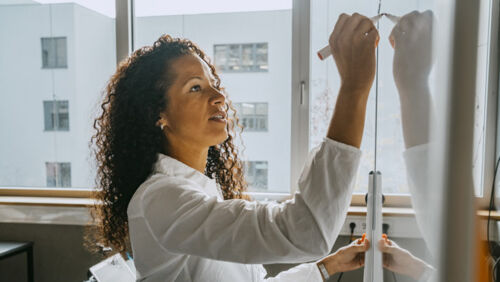11 ways to go green at work
By Susan Hely
Most of my attention has been on making my home green but what about the other place where I spend lots of time - my workplace?
There are plenty of behavioural changes that I can make at my desk, from recycling to printing less, to switching off my computer, to avoiding bottled drinks from the vending machines.
Some Australian companies are making sustainability a top priority and are slashing power wastage by greening their IT, transport, packaging, staff bathrooms and kitchens, and going so far as to build green-rated buildings that cut water and power usage.
Corporate Express, an office supplies group listed on the ASX, has been measuring its carbon emissions since 2007 and has taken big steps to slash this.
From 2008 to 2009, Corporate Express cut its carbon emissions by 20 percent. How did it do this? It applied green changes right across the board, from switching to more renewable power to introducing waterless urinals, to removing 38 servers across Australia and New Zealand that cut 48 tonnes of carbon emissions each year.
It audited its offshore suppliers and increased its range of environmentally preferable products from 600 to 2500, which now make up 2percent of catalogue sales.
And rather than wait for employees to turn off their computers each evening, Corporate Express turned them off for them. At 11pm every evening the "autohibernate" switch ensures power is saved. "We saved one-third of our energy spend on computers," explains Jennifer Levasseur, the company's corporate social responsibility manager. She says it was equivalent to taking 45 cars off the road and it saved the company $20,000 annually.
Just as you read food labels in the supermarket to check the ingredients, it's time to read the labels on your office supplies. Is the paper from a sustainable local source or recycled? Is the tea from a Fairtrade supplier? How toxic are bathroom cleaners?
Recycling is catching on. As well as paper recycling, furniture is now being built to be recycled rather than thrown away and boxes are often reused. There are a growing number of groups that collect old printer toner cartridges to recycle. Levasseur says the next important step for companies is to buy "remanufactured" toners instead of new ones. Levasseur says this will save 3.5 litres of oil for each toner and use only one-twentieth (5 percent) of the energy needed to manufacture a new toner.
"Green" the work kitchen by encouraging colleagues to stop using takeaway cups, containers and cutlery and bring their own kitchenware. Corporate Express stopped putting bottled water in the vending machine and installed filtered tap water.
Why not use tea, coffee and hot chocolate from sustainable, Fairtrade sources to help to improve the lives of workers on the tea and coffee plantations? For a year, National Australia Bank has provided Fairtrade tea, coffee and hot chocolate to staff - who consume 4.5 million cups each year. This has had a wide-reaching impact on the lives of plantation workers in Sri Lanka and Columbia, according to NAB.
NAB applies "avoid, reduce and reuse" principles and encouraged a reduction in employee air travel through video conferencing, while purchasing carbon offsets for all flights.
What you can do
- Ramp up your recycling of all paper and packaging
- Set your computer to sleep mode when you are not using it and remember to turn it off when you leave work
- Use local products to cut back on transport miles
- Make sure your copy paper - as well as toilet paper and paper towels - is from a sustainable source or recycled
- A new design of green furniture can be reused
- Remove bottled water from vending machines and use tap water at work
- Use your own cup and cutlery at work
- Buy office computers, monitors and printers that use less energy to achieve the same results
- Turn off the lights if you are the last one out and use natural light where possible
- Print on both sides of the paper
- Use non-toxic cleaning products
- Cut down on travel; telecommute instead
Get stories like this in our newsletters.



